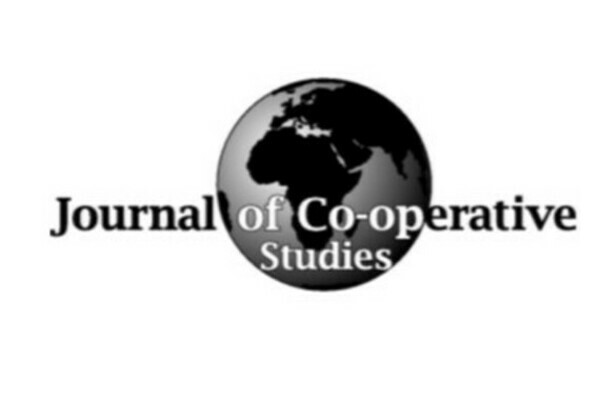Peer reviewed articles
Defeating a demutualisation: A case study.
Alan J. Robb and Neil A. Crombie, pp. 5-10.
Connect Credit Union is a successful mutual organisation in Tasmania, Australia. In 2003 its members were suddenly told that the Board proposed demutualising and seeking listing on the Australian sharemarket. Opponents to the Board's plan were given very little time to mount a campaign to challenge the proposal. However, drawing on international support and information from co-operators, they were able to defeat the proposal. A leader of the campaign was elected to the Board, with the highest polling, at a subsequent
meeting of members. This paper examines the situation which resulted in the surprise demutualisation proposal, the tactics used to defeat it, and the financial performance of the organisation both before and after 2003. It provides lessons for other co-operatives and mutuals which may face unwanted calls for demutualisation.
‘Co-operative Identity’ – a concept for economic analysis and evaluation of co-operative flexibility: The Dutch practice and the Hungarian reality in the dairy sector.
Gábor G. Szabó, pp. 11-26.
Problems of farmers and co-ordination of (agricultural related) activities cannot be solved simply by EU and/ or government support; instead, private-markets co-ordination institutions, like emerging producers' groups and co-operatives seem to be vital in establishing bargaining power. In theory, and according to Western European (Dutch, Danish etc) and US practical experiences, one of the main important private institutions which can strengthen producers and help to co-ordinate (agricultural) chains is the co-operative form. In order to be able to fulfil the basic co-operative aims and to be able to compete in a more market-oriented environment (e.g., more liberal agricultural policies, opening European and world market, etc.) they will execute new marketing strategies. To be able to implement such new marketing strategies, co-operatives have to collect more risk-bearing capital and this is currently precipitating some fundamental financial and organisational changes in Western European agricultural co-operatives. To be able to keep the basic co-operative character, they are undertaking internal and external organisational changes, which in a number of cases will create so-called new co-operative structures/models. In this paper, the concept of the 'co-operative identity' (consisting from the definition, aims and functions of co-operatives, as well as the so-termed co-operative principles) is proposed to serve as a general theoretical background for the economic evaluation of the flexibility of (agricultural) co-operation. Approaching the concept of the 'co-operative identity', the Dutch(dairy) co-operative development is used as an example, which suitably illustrates and represents the processes currently taking place in the European Union. The main goal of our study is to show Dutch dairy co-operative development, with conclusions for the Hungarian situation. It is necessary to state that Hungarian agriculture and co-operatives are at a different stage of development, so one cannot expect the most recent organisational forms to be established in Hungary, especially taking into account that the Hungarian dairy market is already dominated by multinational nonco-operative (investment oriented) firms. However, further establishment of the collecting and the bargaining type co-operatives and the development of existing dairy producers' groups would be essential for the Hungarian milk producers.
The role of co-operatives in economic growth and poverty reduction in South Africa.
Antonie van Rensburg, pp. 27-39.
Just as governments need economic growth policies and models, communities at grassroots level also need them to improve the livelihoods of their members. In this article, I present a business model that I have developed with Mrs Wezi Ximiya (one of the first implementers of the village co-operative banmkng model in South Africa in the 1990s) to address the economic development of poor people in rural communities through cooperative structures. Interventions to establish co-operative village banks in South Africa in the early 1990s lie at the heart of this economic development model. However, these co-operative institutions met with mixed success, and during 2002 we developed a new strategy and operating model to address the form, function and implementation process for these pro-poor financial co-perative institutions.
Taxation on social enterprises: The case of Spanish co-operatives.
Marta Montero and Alfonso C. Morales, pp. 40-51.
This report studies the extent to which current Spanish legislation favours an efficient co-operative model for labour insertion. Our first step will be to analyse the reality of social enterprises (co-operatives and non-co-operatives) in Spain today. Then, focusing on co-operatives, two aspects will be considered from a legal point of view: a) How do the autonomous regions regulate this type of co-operative and to what point do State and Autonomous Region regulations contribute to the creation of 'labour insertion co-operatives'?; b) What fiscal measures exist for these co-operatives? A study has been carried out comparing the fiscal regime for co-operatives in the Basque Country to the fiscal regime for co-operatives in the rest of Spain.
Short articles
Reclaiming the economy: The role of co-operative enterprise, ownership and control.
Molly Scott Cato, pp. 56-57.
Review of the UKSCS International Research Conference, University of Wales Institute, Cardiff, 6-8 September, 2006.
What Future for Co-operatives in Food Retailing’. Panel debate at ‘Living the Vision: Co-operative Principles in Contemporary Practice’
pp. 58-65.
Report of the panel contributions and questions and answers at the UKSCS Annual Conference, UWIC, Cardiff, September 2006. Chairing the session was Paul Jones, UKSCS member and editor or the Journal. Panellists: taking part included: Alan Gill (Chief Executive, Leeds Co-operative Society); Adam York (founder member, Unicorn Grocery, Manchester); Kevin Morgan (Professor, University of Wales, Cardiff); Jon Walker General manager and development director, Out of this World); and Fr Hugh Bridge (Co-operative Group Area Committee member).
Employment law vs democracy: How Suma is governed and how this may be threatened by statutory employee rights.
Bob Cannell, pp. 66-70.
This short article looks at the network governance structure at SUMA Wholefoods (UK) to examine the increasingly obselete command and control model of employee relationships and how this is threatened by and is threatening the development of worker co-operatives.
Book reviews
Social enterprise at the crossroads of market, public policies and civil society. Edited by Marthe Nyssens.
Reviewed by Molly Scott Cato, pp. 71-72.
It was a great privilege: The co-operative memoirs of B. N. Arnason. By B. N. Arnason.
Reviewed by Rita Rhodes, pp. 73-74.
Co-operation, social responsibility and fair trade in Europe. Edited by Linda Shaw.
Reviewed by Katarina Friberg, pp. 75-76.










